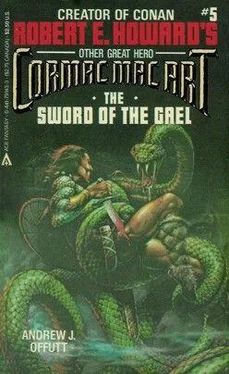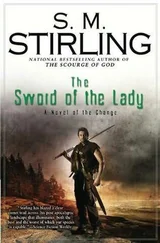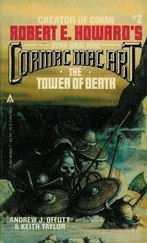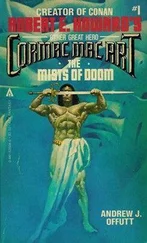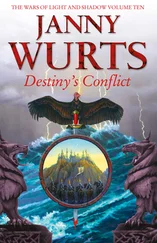Andrew Offutt - The Sword of the Gael
Здесь есть возможность читать онлайн «Andrew Offutt - The Sword of the Gael» весь текст электронной книги совершенно бесплатно (целиком полную версию без сокращений). В некоторых случаях можно слушать аудио, скачать через торрент в формате fb2 и присутствует краткое содержание. Жанр: Фэнтези, на английском языке. Описание произведения, (предисловие) а так же отзывы посетителей доступны на портале библиотеки ЛибКат.
- Название:The Sword of the Gael
- Автор:
- Жанр:
- Год:неизвестен
- ISBN:нет данных
- Рейтинг книги:3 / 5. Голосов: 1
-
Избранное:Добавить в избранное
- Отзывы:
-
Ваша оценка:
- 60
- 1
- 2
- 3
- 4
- 5
The Sword of the Gael: краткое содержание, описание и аннотация
Предлагаем к чтению аннотацию, описание, краткое содержание или предисловие (зависит от того, что написал сам автор книги «The Sword of the Gael»). Если вы не нашли необходимую информацию о книге — напишите в комментариях, мы постараемся отыскать её.
The Sword of the Gael — читать онлайн бесплатно полную книгу (весь текст) целиком
Ниже представлен текст книги, разбитый по страницам. Система сохранения места последней прочитанной страницы, позволяет с удобством читать онлайн бесплатно книгу «The Sword of the Gael», без необходимости каждый раз заново искать на чём Вы остановились. Поставьте закладку, и сможете в любой момент перейти на страницу, на которой закончили чтение.
Интервал:
Закладка:
“I be no weak mewling girl who must be sheltered from the hint or sight of harm and carried like a babe across a mere bit of blood!”
“Oh,” he said.
He walked three paces on, into the dust, and dropped her. Dust flew up and she groaned, but he was, already turning back. He retrieved his Saxon dagger from the serpent’s mouth, calmly enough, and he took up his ruined shield too, to show the others he’d had no easy time of it and had not been a-womanizing whilst they faced stern blades against his counsel.
“I suppose,” Saimare of the flaming hair said when he rejoined her, and her standing, “that I am committed and cannot now put bad words on you for having dropped me, and me both a woman and a king’s daughter.”
“I suppose not,” Cormac said.
They went on, ever upward. After a time he glanced at her face in the torchlight, and she looked up at him. They grinned together, and then they laughed.
“Barbarian,” she snapped. “Cu Roi mac Dairi!” There was laughter still, in her voice.
“Warrior-woman,” he retorted, grinning. “Morrigu and Agron all in one, ye are!”
Laughing, they went on. She had named him that god who was master of sorcerers and great traveler; he who had done conquest all over the world, but had never reddened his sword in Eirrin; it was apt enough, saving only that one man Cormac had slain, at the Great Feast twelve years ago. He in his turn had called her by the name of both the goddesses of war and of slaughter. He hoped there was no aptness in her case: a prophetess, Morrigu the Battle Crow was not unknown for treachery done on the sons of men.
At last they re-entered the room where Cutha had sought to bargain with her, and thence they went around and down into the castle’s main chamber.
It was a charnel house.
The reek of gore was in the air, and somewhere Morrigu must have been licking her lips. Blood was splashed everywhere and pooling the floor around the corpses of slain men. A great battle had taken place here, and Cormac and Samaire found but two survivors. Both men dripped blood.
One was a red-bearded giant, tall-as tall as Cormac-and hugely built. He leaned on a great gore-smeared ax, and his fierce eyes gleamed with the joy of battle and having done to death every man of his foes. His thrice-dented helmet lay on the floor, and now it sprouted but one horn.
The other man was built more as Cormac was, lean and lithe and catlike, with a rippling sinuousness. Fire and sunset his hair was, and his face had been smooth-shaven; now it sprouted the gleaming growth of a seven-day or so. He was not so tall as mac Art, and was in truth considerably better looking, without Cormac’s several scars and slitted eyes. Rent bloodsoaked was his once-white shirt, and there was blood too on his chin and many dark spots and lines marked where it had splashed his leather leggings and boots. This man, not yet thirty, sat on the floor with his right hand clamped around his left arm at the elbow, where blood trickled.
“Ceann!” Samaire cried. “You’re hurt!”
“Aye.” He nodded. “It’s the edge of a dagger I caught here, but it’s hardly my death I’ll have from it. The dagger is still clenched in the hand that wielded it-see?”
She followed the direction of his nod. “Ugh,” she said rather than groaned, for the dagger-clenching fist was several feet from any arm. Wulfhere laughed aloud.
“This great warrior had the fellow’s hand apart from his body and his entrails plopping forth with two slashes so swift I could not have swung my ax once in the same space!, It’s a fellow son of Eirrin we’ve liberated from the Norse, Cormac. And by Odin and the blood of Odin, he himself liberated several of their spirits from their bodies in the doing!”
“Cormac!” the young man said, and he stared at the man who had returned with his sister. She had already ripped and slashed a great long strip of cloth from a tumbled bale of purest white, and anointed his arm with wine as though it were plentiful as water. Now she was binding up his wound.
Cormac’s blue eyes met the seated man’s strangely pale, blue-green ones. “Aye, Ceann mogh Ruadh mac Ulad, Cormac, whom you knew as Partha mac Othna.”
“And who my sister knew all too well!”
“Still your body and your tongue, darling brother,” Samaire snapped, “or I’ll pull both ends of this cloth till your arm drops off! He has just followed me miles underground, and him in the dark, and forced to face too the grandfather of all serpents which he slew with so much blood as to redden the Boyne for a week!”
Cormac blinked at the fierceness of Samaire’s tone, and her poetic exaggeration. It was Wulfhere who spoke.
“Ho! So that’s the way of it-methought perhaps you bent your shield so in falling over your own feet, Cormac!”
With a swift, small smile, Cormac hurled the ruined shield at him. Wulfhere batted it away negligently, though in truth another man might have been bowled over.
“So it’s all old friends you Gaels are, then. Ceann Red-hair I have already exchanged names with. And this be his sister, Samaire?” The hulking Dane smiled upon her. “It’s nice heads of hair ye both have-I be partial to red!”
Samaire looked about that great hall. “So,” she said, “I see. There, Ceann, and try to keep yourself quiet a time, that the wound has time to close. Does it hurt, brother?”
“It hurts. Seeing the waste of that good wine hurts the more, though!”
“A warrior indeed!” Wulfhere called out, amid a burst of laughter. “An all the men of Eirrin were as you twain, Cormac and Ceann, it’s straight for Dane-mark I’d set my sail, to avoid getting my death at the hands of such ferocious heroes as ye both be!”
Ceann stood up. “It’s in your debt I remain now, Parth-Cormac mac Art.”
Cormac nodded. “I lay no claim,” he said. “Now suppose we take up a bit of food and enough ale for ten-”
“Twenty, and I’m to have aught!” Wulfhere interrupted.
“-and get ourselves elsewhere, away from the smell and sight of blood. It’s sword-companions Wulfhere and I have lost this night, and a man deep in ale has no memory.”
Immediately, after the manner of Eirrin, Samaire set up a keening. Wulfhere glanced at his comrade.
“She does us honour, keening our dead,” Cormac told him. “It is our-it is the way of Eirrin.”
Wulfhere nodded. He walked to the lamenting young woman, scooping up two leathern sacks of ale as he went. His hand on her shoulder covered it from throat to upper arm.
“With thanks, friend of my friend. But let’s away from this slaughterhouse and shriek in our minds.”
Well laden, the quartet departed the reeking scene of red horror and destruction, and went along the corridor none of them had traversed. There they found two rooms, one after the other, spread with stolen cloths and cloaks-of Gaelic manufacture, Cormac noticed-and tables. The arrangement of cloth and furs showed that the Vikings had slept here. The only four occupants of that palace great enough for a thousand entered, and sat and drank. And Samaire and Ceann told their story.
Ulad Ceannselaigh, king of tribute-laden Leinster, had died of a sudden, and without blood. Naturally he left his throne to his firstborn, Liadh. That elder brother of Ceann and Samaire sat the high seat well, and retained most of his father’s advisers, creating his brother Feredach his high minister. Her father had long since wed Samaire to a prince of Osraige, which to everyone but its king was a part of Leinster, along the western border. Aiding the southern Munstermen in resisting a Pictish incursion into their lands, Samaire’s husband took an arrow in the chest. He died even as he was being carried back to Osraige. Childless and in difficulties with her husband’s mother, Samaire returned to Carman in Leinster. She had an honoured place in the household of her kingly brother Liadh, along with Ceann, whose wife had died in the bearing him of their second child.
Читать дальшеИнтервал:
Закладка:
Похожие книги на «The Sword of the Gael»
Представляем Вашему вниманию похожие книги на «The Sword of the Gael» списком для выбора. Мы отобрали схожую по названию и смыслу литературу в надежде предоставить читателям больше вариантов отыскать новые, интересные, ещё непрочитанные произведения.
Обсуждение, отзывы о книге «The Sword of the Gael» и просто собственные мнения читателей. Оставьте ваши комментарии, напишите, что Вы думаете о произведении, его смысле или главных героях. Укажите что конкретно понравилось, а что нет, и почему Вы так считаете.
